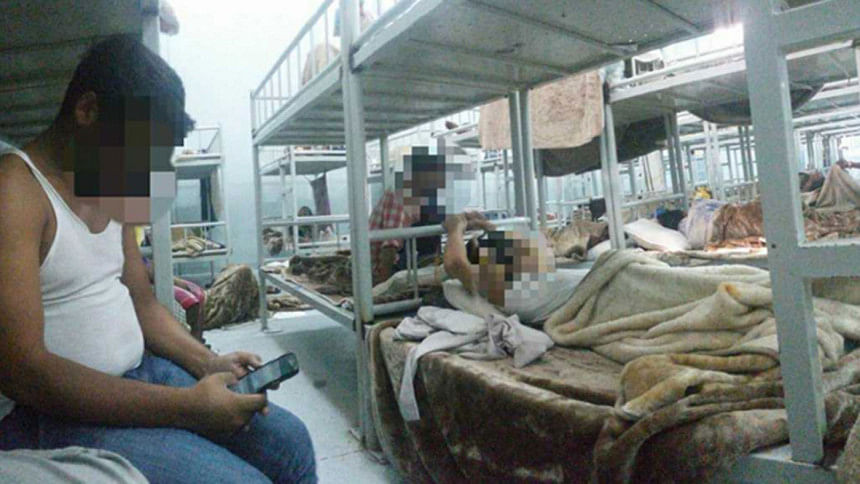Rohingyas held in KSA begin hunger strike

Scores of Rohingya detainees inside Shumaisi detention centre in Jeddah of Saudi Arabia have begun a hunger strike to stop the Gulf kingdom from deporting them to Bangladesh, reported Middle East Eye, a news outlet published from UK, on Thursday.
The detainees said they had "no alternative" but to start the strike for the second time in the last four months as many of them were forcibly deported to Bangladesh during that period.
Photos and videos sent to the Middle East Eye (MEE) showed detainees were refusing to take their daily food rations in protest of their possible deportation.
Zahid (not his real name), a Rohingya refugee in the detention centre, said they had organised the hunger strike via Whatsapp and other messaging apps.
"When we started the hunger strike, there were three hundred of us, and gradually more people began to join us," he told the MEE via voice notes.
"An old man, who took part in the hunger strike, has already been taken to the hospital," Zahid said.
"We don't know how many more days we can last. They are pressuring us to eat. Please pray for us."
Another detainee, Rafeed (not his real name) said Saudi authorities had promised to set them free if they withdrew their last hunger strike.
"But they didn't keep their promise," he added.
"POOR RECORDING" OF WITNESS STATEMENTS
Meanwhile, Nina Tavakoli, a barrister at Red Lion Chambers, who visited the Rohingya refugee camps in Bangladesh at the end of 2017, warned on Wednesday that there was little coordination between actors documenting the crimes against the Rohingya.
"There is a risk of repeat interviewing. That's bad for witnesses… [with] survivor fatigue, people might stop talking," she said, reports Law Gazette, a British legal weekly magazine.
She said prosecutions for crimes committed during the forced displacement of 727,000 Rohingya from Rakhine State in Myanmar may fail because of a casual and uncoordinated approach of taking witness statements.
"Criminal lawyers are critical of [the approach] human rights actors," she said at a panel discussion on 'challenges to international accountability' organised by Red Lion Chambers and hosted by international firm Hogan Lovells.
For taking sensitive statements, including allegations of sexual assaults, "there is a lack of appropriate private space", she added.

 For all latest news, follow The Daily Star's Google News channel.
For all latest news, follow The Daily Star's Google News channel. 







Comments